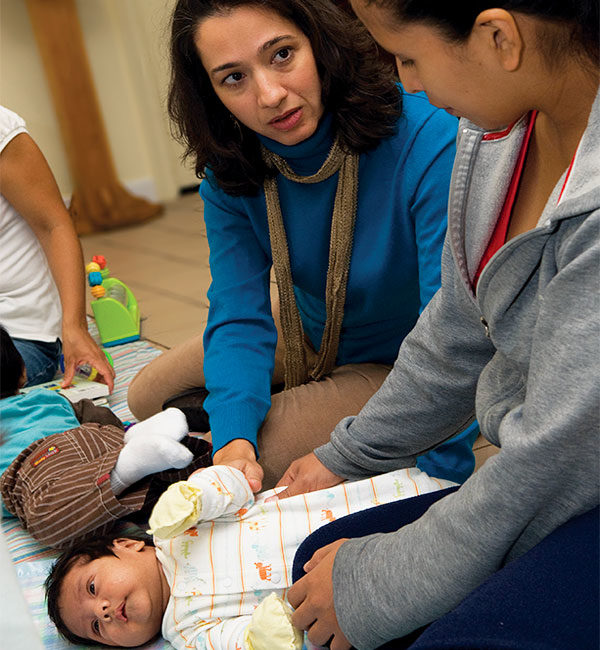This project was a coordinated effort between Erikson Institute and Boston Medical Center to provide consultation and training for staff at local community-based agencies in Chicago that provide services to young immigrant children and their families since the beginning and throughout the COVID-19 pandemic.
Ongoing challenges encountered by immigrant families in this country originated in decades of anti-immigrant sentiment, racialized immigration policy and ethno-racial violence, have been exacerbated and exposed by the pandemic and have highlighted not only these families’ needs, but also the needs of the staff working directly with these families. These needs have been acutely observed and experienced by the agencies that closely work with immigrant families through home visiting programs, early childhood education/early head start settings, and infant and early childhood mental health service agencies.
This project is funded by Irving Harris Foundation and The Pritzker Children’s Initiative.
The Supporting Immigrant Families training, and consultation project focused on the specialized needs of families with very young children who are impacted by a range of immigration stressors and challenges, which have been exacerbated by the COVID-19 pandemic and anti-immigrant sentiment and laws. The project focused specifically on supporting Latinx immigrant families.
This project aims to promote the mental health and well-being of families with infants and young children, through collaborating with organizations that support these families. The project was designed to enhance the capacity of the infant and early childhood workforce in community and home-based settings by providing up-to-date knowledge and skills.
A learning collaborative approach was used to promote long term adoption and implementation of new practices across the organizations that participated, through training directors, supervisors, and front-line workers. The trainings and consultation were trauma-focused, developmentally appropriate, diversity-informed, and culturally responsive. The Supporting Immigrant Families learning collaborative included didactic training, ongoing agency support, reflective consultation, technical assistance for practitioners, and support for staff well-being.
Training: Multi-day workshops hosted across nine months provided in-depth information to support staff and organizations working with immigrant families. Specialized trainings included:
Consultation: Director/Supervisor consultation group and a Front-Line Provider consultation group were held regularly over nine months with multiple agencies together, receiving consultation with our experts. This structure supported agencies and participants in learning and applying new strategies from each other and from our expert consultants.
An evaluation of learning collaborative participant’s initial knowledge and application of techniques were completed pre- and post-participation in the training sessions and consultation groups to assess the effectiveness of the training. The evaluation was used to design curriculum and allow trainings to be adjusted to participant needs and will inform assessment of practice and related changes.
Forthcoming materials include the following:

Join the Erikson family with monthly news + events updates shared by academics, community members, and families.